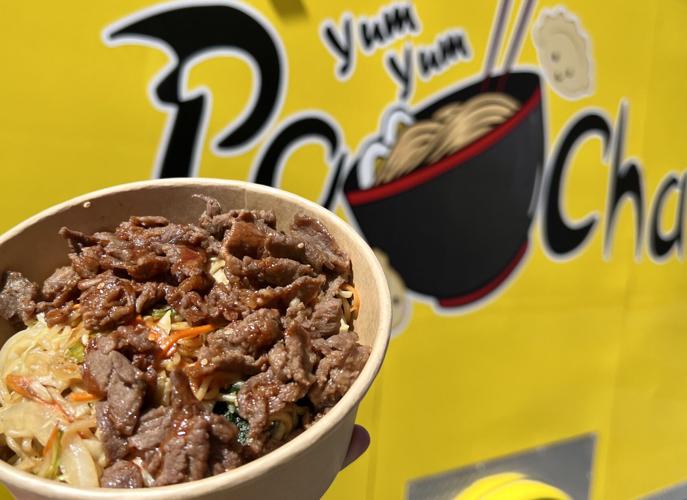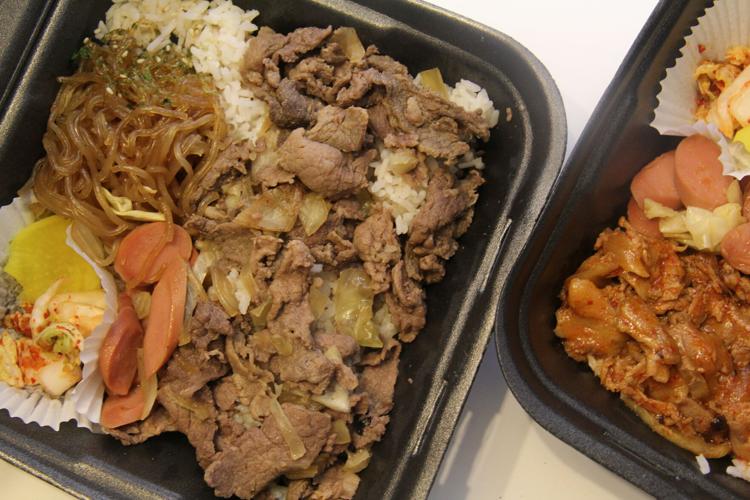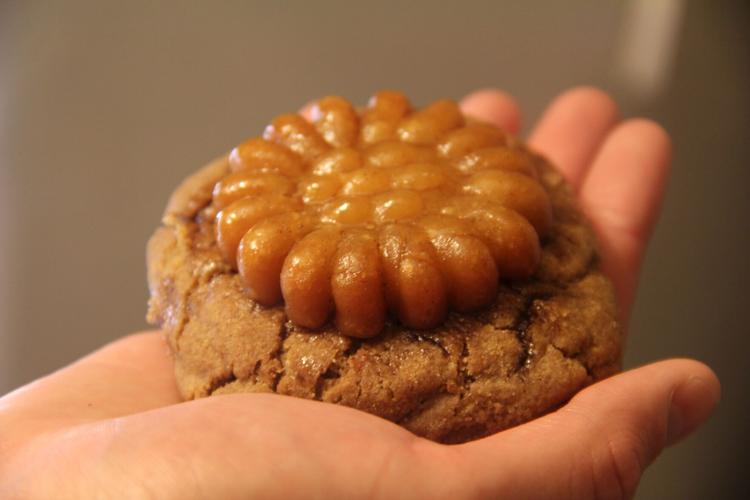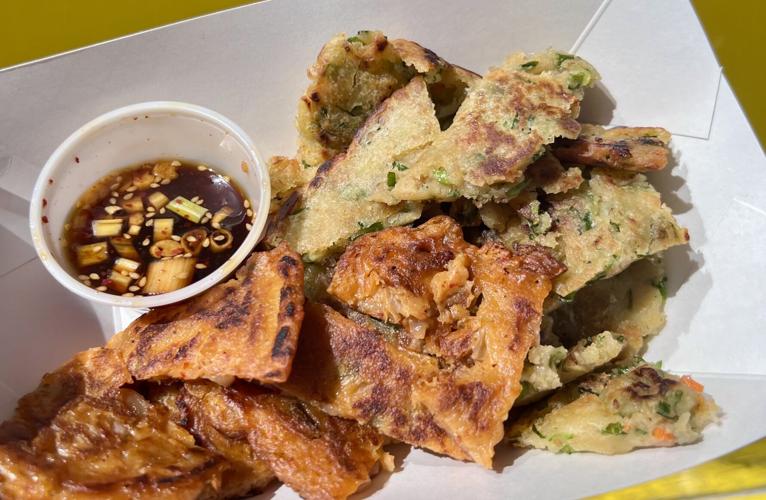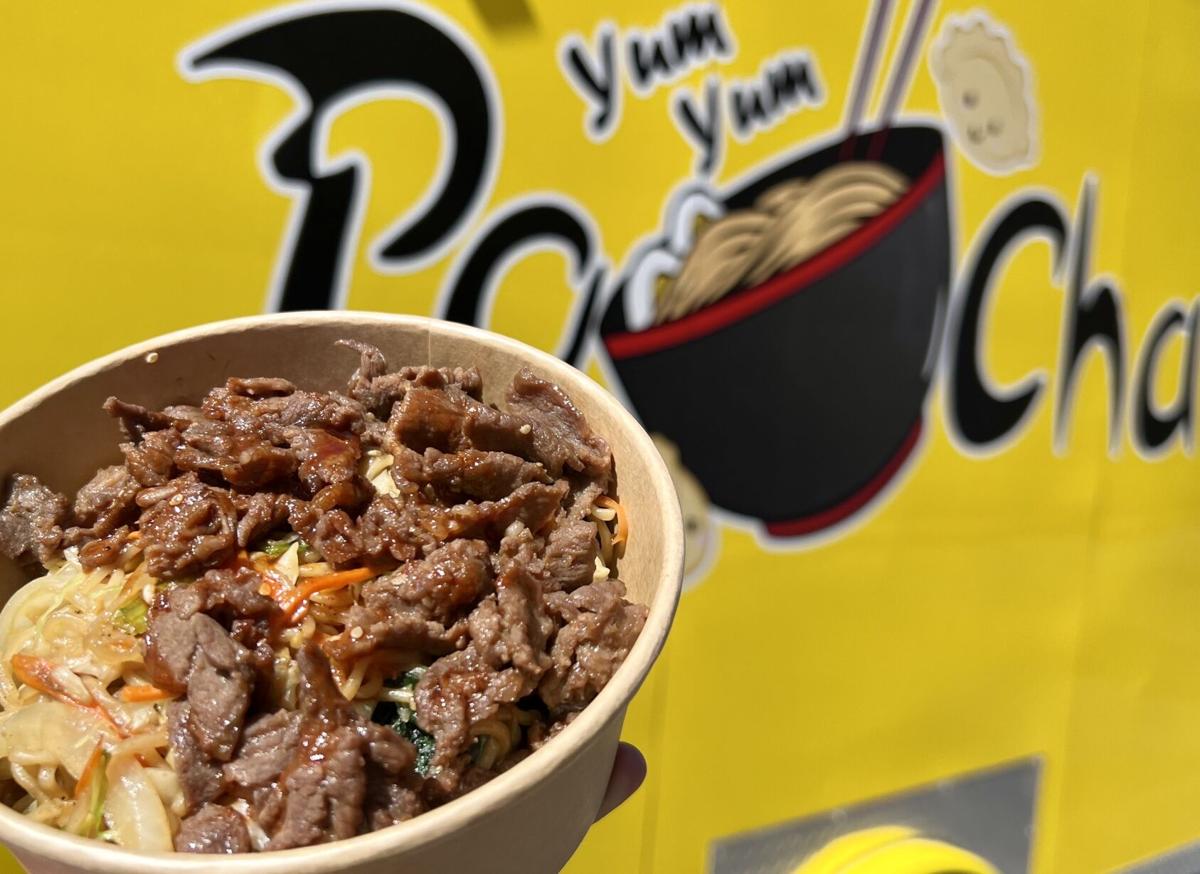Miyou Wallace woke up one day and told her husband John: "I want to start a food truck."
The story makes it seem like it happened in the blink of an eye, but it goes back much farther than that.
"It all started 35 years ago, I guess. That's when I met my beautiful wife," John Wallace says. "We've done a lot of things over the years and we're getting older and thinking of what we haven't done."
Miyou has always loved cooking, learning everything from her mom. Miyou's mom wanted to open a restaurant of her own, but she had a big family at home — and little time to operate a business.
All of Miyou's sisters cook, too. But Miyou is the one who finally did it: she opened a food truck, dubbed Yum Yum Pocha, alongside John.
"I talked to my sister last night who said, 'I can't believe you actually started it,'" Miyou says. "When I was growing up, I loved the street food so I just started cooking what I like."
Yum Yum Pocha isn't the only new Korean food truck in town — Junghwan Kim opened his food truck Doshirok, which means "lunchbox" in Korean, just days after the Wallaces opened theirs.
Junghwan spent around four years in the Army before heading to culinary school. He moved to Tucson almost specifically to open Doshirok.
"I noticed there aren't that many Korean restaurants (in Tucson)," Junghwan says. "I thought, why not here?"

Doshirok is a new Korean food truck serving beef bulgogi (left) and jeyuk (pork) bulgogi (right).
"The main idea was to provide something that was a Korean-style meal box," Junghwan says. "I wanted to serve people of Tucson something fairly quick and delicious that is not something people are too used to."
Doshirok specializes in dishes like beef bulgogi and spicy pork, with sweets like Yakgwa cookies. The pork is his favorite, but customers tend to first fall in love with the beef.
"Many customers haven't really tried this type of dish (the spicy pork), so they try it once and then they get hooked," he says. "Until then, it's usually beef, beef, beef until they try the pork."
He makes the food himself, from the rice and kimchi to the marinades and the cookies. He's also dabbling in catering, where he's able to make other Korean items, and he's thinking about debuting other sweets on the food truck in the future.

For dessert, Doshirok serves Yakgwa cookies, also known as Korean honey cookies.
Junghwan started cooking as a kid, watching his grandma in the kitchen. He began with simpler dishes like ramen and fried eggs, until his recipes started to expand.
"Korea is the country where I was raised, so I know the ins and outs of certain cuisines," Junghwan says. "Now we live in an era where we can type up something on YouTube or Google and get any type of recipes, but that's not the flavor I grew up in. I wanted to bring something a little more authentic and a little more interesting than what you can easily find online nowadays."
Over at Yum Yum Pocha, the menu is an entirely different take on Korean cuisine. Ramyeon, described as a Korean version of ramen, is the star of the menu with six different versions and five different spice levels. "Her No. 5 will make you sweat," John says.
"It's very different than Japan's ramen, and I'm not knocking the others, but it's different enough that anybody who enjoys noodles should give it a go," John says.
Stir-fry noodles and rice bowls are also popular (vegetarian, vegan and gluten-free options are available), but Miyou's personal favorite is the fried mandoo, similar to a dumpling. Miyou uses her mom's recipes for the sauces and marinades across the menu.

Though they don’t make them often, Yum Yum Pocha sometimes has buchimgae, aka pancakes made with kimchi and chives, on the menu.
"All the stuff on our menu, if you walk down the streets of Seoul, you will find these items," John says.
Miyou remembers a time, when she moved to Tucson more than three decades ago, when people couldn't place Korea on a map. "These days, everybody knows Korea. And for the younger generation with TV and K-pop, street food goes together."
As the Wallaces are learning, Tucson shows up. They have customers who visit every location their food truck is parked at.
"I love this job," Miyou says. "I tell my husband every day I love this job."
"What is the goal? What is the most important part of the food truck?" Miyou asks. "For me, I cook the Korean meals for customers like I'm going to feed my own family."
Where to find the food trucks
Doshirok often sets up on the Davis-Monthan Air Force Base and for late-night eats at the Amazon Fulfillment Center on Kolb Road, among other locations. Junghwan posts the weekly schedule on Doshirok's Instagram page.
Yum Yum Pocha is often parked on Tucson's north side, and also posts their locations on Instagram. You can also see their calendar through Street Food Finder.


